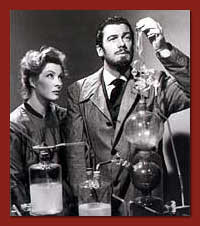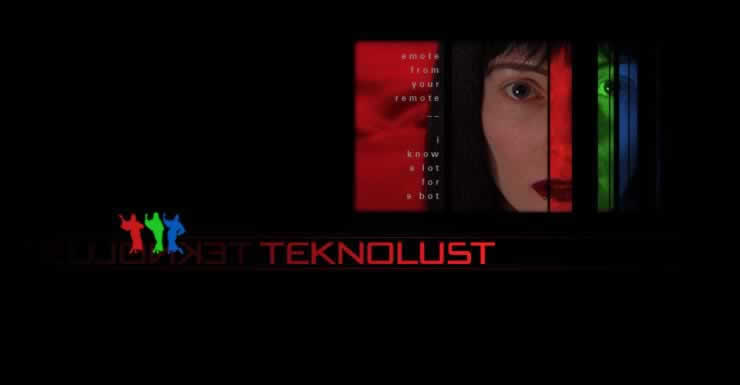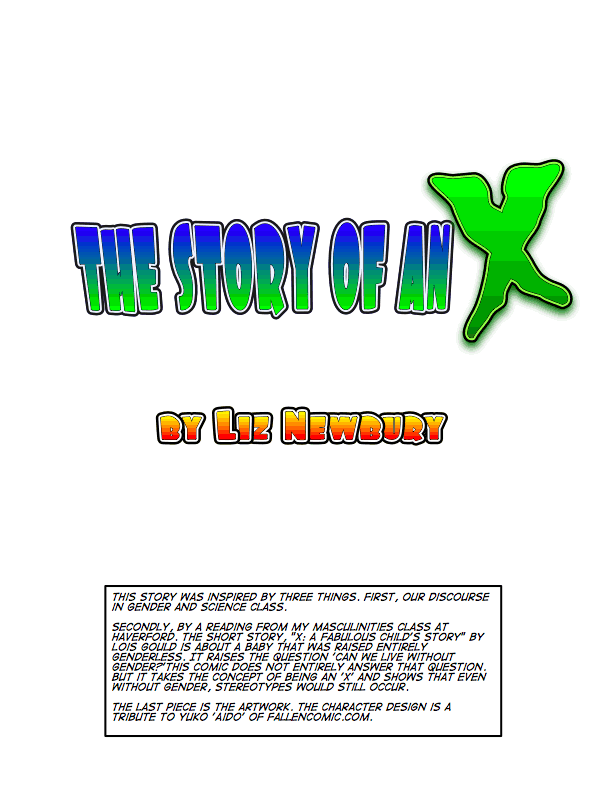Serendip is an independent site partnering with faculty at multiple colleges and universities around the world. Happy exploring!
Where, when and how does interdisciplinarity matter? The example of Gender and Science
Where, when and how does interdisciplinarity matter?
The example of Gender and Science

The First First Friday in the
Bryn Mawr College
Faculty Club Lunch Series
September 7, 2007
Anne Dalke and Liz McCormack
Trying something different/working in another mode than the presentational:
"four slides" and a conversation...
Anne:
I. Motivation and Background
When I started running F&Gs over a decade ago, it bothered me:
no science faculty involved in the program.
Would be bi-directionally useful:
more science in gender studies, and
more awareness of complexities of gender
in science depts. @ this woman's college.
After a tri-co Mellon grant, guest lecturers,
faculty reading group, multiple adjuncts, one post-doc...
eventual outgrowth of that concern:
course on G&S Liz and I taught here last spring.

for all of us talking together about two things:
1) a theory of how new knowledge gets generated
in an interdisciplinary context (forthcoming in Journal Research Practice)
2) potential concrete LOCAL applications of this theory:
invite you to think with us about designing
a senior experience--a post-disciplinary "senior CSem"--
that would enable this sort of knowledge production;
we want to offer our course again next year/
eventually institutionalize it (or course/s like it);
& want your help in thinking about how to do that.
II. Overview
To start: what we already did.
General Studies 224--Gender and Science:
Re-envisioning & Revising the Relation
(extensively archived on web @
/sci_cult/courses/genderscience )


3 parts/sets of questions: about
-- the role of women in the scientific enterprise
(means of access and practices of women in science;
& what particular role a women's college has to offer here)
-- the contemporary feminist critique of scientific practice
(can there be scientific knowledge independent of us?
how is it constructed? encultured? biased?) and
-- what our answers to both sets of questions suggest
about the science education of everyone.
"Philosophy of Science meets Gender Studies"
Physics, as the exemplar/icon of science-practice,
engaging with exciting feminist scholarship about how science is done.
--(Liz is a physicist)
--(physics has particularly poor representation of women)
**correspondence between feminist standpoint epistemology
and modern physics, i.e.:
both look @ ways in which our measurements of probabilistic,
non-deterministic phenomena are influenced by our observations;
how our role as observers makes us part of the experiment/measurement,
not just perturbation but determinant in outcomes.
Course also demonstrated how generative transdisciplinary work can be
precisely because it is not overly determined:
it unsettles assumptions about what counts,
about what should be foregrounded, what needs to be attended to--
it maximizes serendipity.

III. Highlights of what happened
1. shattered dicotomies on which philosophical discourse is based
students more interested in a web of interests than chosing between oppositions;
ex: broke down paired options of "women" and/or "scientist"
2. dramatized social dimensions of science:
problematic role of social goals/social values in doing science
3. revealed underdetermined relationship between parts and wholes,
between details we attend to and generalizations we make from them.
(example: writing a haiku in "Apple Blossom Journey: A Path to Feminizing Physics")
IV. Observations
--striking student responses to invitation to contextualize, synthesize andput into perspective their disciplines (anthro, bio, gender studies, physics, psychology)
--performative assessments to end, including "lunch conversations" after class

--should this be a type of experience that all students have access to?
--would it make sense to institutionalize, on the senior level,
courses that highlight this sort of work?
--what might such courses look like?




Comments
crossover seminars
In their First Friday luncheon talk, Anne Dalke and Liz McCormack
discussed their senior capstone seminar on Gender and Science.
A key intention (and outcome) of the course was to consider
the topic from more than one disciplinary and in fact, divisional
perspective. That is, to bring together faculty and students from the
humanities and the sciences. Not surprisingly, interesting and exciting
things happened when a group of Bryn Mawr-educated seniors were brought
together for extended conversation on a rich topic. The only surprising
thing is how seldom we do it.
Some curricular Concentration programs at Bryn Mawr allow students to
focus on a sub-field within a major discipline, whereas other
Concentration programs very intentionally encourage students to cross over
and engage in synthesis with students and faculty from backgrounds that
are decidedly different than their own. Liz noted that this was part of
the intent of C-Sem II. However, the type of disciplinary crossover
experience that Anne and Liz described seem to be much more fruitful when
they come near the end of the student's career at Bryn Mawr, once the
student has developed the appropriate depth in her major field.
This "capstone" type of crossover experience has long been the intent of
the senior seminar that is required for all Environmental Studies (ES)
concentrators. With the hiring of an ES-oriented faculty member in a Div
I/III field (Ellen Stroud, Cities) last year, it now has become possible
to run the course with faculty members from both the Natural Sciences and
the Humanities in the room together with students majoring in departments
spanning the divisions.
In describing this type of activity, we have sometimes gotten bogged down
in the semantics of whether we‚re doing cross-disciplinary,
interdisciplinary or transdisciplinary work. I would suggest that the key
component is the practice of reaching across disciplinary or divisional
boundaries. Therefore, why not call our Division-spanning senior course
experiences Crossover Seminars?
A longer-term semantic question is whether some (but not all) of our
current Concentration program should be redefined as Crossover programs.
This might seem especially appropriate for programs such as Environmental
Studies where the bulk of the coursework requirements aim to enhance the
student‚s aptitude in approaching environmental issues from alternative
disciplinary and divisional perspectives.
But for now I propose the term Crossover for senior "capstone" seminars
that bring together students and faculty from different backgrounds to
discuss, synthesize and generate knowledge on a particular topic. If it
is preferable to avoid ambiguity, the Microsoft Word Thesaurus suggests
that "intersect" is a synonym for crossover. This would give rise to
Senior I-sems, which may or may not be preferable. Catalyst and
Connection are other c-words that might describe the seminar.
transit
This year I am a TA for Urban Culture and Society, a course in the Growth and Structure of Cities Program. This program seems like a valuable model of what you are talking about in terms of interdisciplinary or transdisciplinary work.
I think you (Anne and Liz) were suggesting there might be an important distinction between interdisciplinary and transdisciplinary work. You have me wondering, does transdisciplinary work eventually become interdisciplinary discipline after a while? In what ways do the professors in a multidisciplinary disciplines find themselves transformed (or not) by their contact with colleagues and students who hold such varied interests? The gap that interdisciplinary work bridges may not be as great as the gulf between Physics and English Literature or feminist critical thought, but it could be as different as architecture and art history, planning, GIS applications, or environmental studies (itself another interdisciplinary area of study).
Do you suspect that there are risks of just creating new monolithic disciplines out of formalized interdisciplinary activity (e.g., Cities, Environmental Studies)?
I like the question you raised about formalizing a requirement of participation in transdisciplinary activity. One potential advantage might be that students' perspectives would be expanded by the requirement without actually losing focus on their central interest. Would you anticipate problems in terms of limits on resources? Does it matter if professors or departments prefer to focus their relatively limited resources upon students who are likely to pursue their multidisciplinary programs?
Then again, depending on how we define what counts towards this requirement, it may turn out that enough programs already exist, and even that many students already participate in some aspect of this during the course of their student careers; still, that might be quite different from requiring seniors to participate in a transdisciplinary capstone colloquium.
Finally, Sky Stegall articulated a "path to feminizing physics. "Given our conversation today, I wonder if we might think of this as transgendering physics, in the broad sense of crossing back and forth across the constructs of gender and physics, disrupting and redistricting the boundaries as we go.
transdiciplinary senior seminar
Your presentation started me thinking about some kind of transdisciplinary senior experience that would be fun for faculty, valuable for students, and practical to mount. I also
started pondering topics that I thought might lend themselves to such an undertaking. My current musings on the topic follow below:
1) My idea would be to have a senior seminar experience that would involve students taking two 1/2 semester modules, each one focused on a theme.
2) Each seminar would be staffed by about 5 faculty members, each from a different department and representing various divisions/disciplines. About 10 students would be enrolled.
3) The emphasis of the experience would be on discussion of the topic, with faculty members taking turns each week presenting something from the perspective of his/her discipline to start the discussion going.
4) Readings would be very limited, as would writing requirements, so that preparation would be minimal for both faculty and students. Perhaps each student would be asked to produce some sort of presentation/product at the end, with the format of that being unspecified (as you did in your class).
5) The seminar would be ungraded and not count for course credit and would meet for one hour per week for 7 weeks. Perhaps the final two meetings could be devoted to the student presentations.
6) My thought is that, if the program worked well, students would be required to participate in two such modules during the senior year. However, to try it out, it would be voluntary at first. Because the preparation and time commitment would be minimal for faculty and the interaction should be stimulating and fun, "teaching" it would not count toward one’s teaching FTE.
7) The topics I thought would lend themselves to this kind of thing are broad. I have listed some possible topics and sample disciplines that I think would be relevant for each.
pollution: biology, film studies, anthropology, economics, English, political science, geology,
evil: philosophy, history, psychology, Russian, biology
race/racism: sociology, biology, Africana Studies, German, psychology, film, history of art
time: history, economics, physics, math, philosophy, French, archeology, geology
symmetry: history of art, math, chemistry, psychology, political science, classics
randomness: physics, math, philosophy, economics, psychology, English
health: economics, biology, psychology, sociology, history, anthropology, chemistry
war: classics, political science, history, physics, film studies, history of art, psychology, English
equilibrium: physics, philosophy, math, history of art, economics, political science, psychology
gender: biology, economics, anthropology, Spanish, psychology, political science, arts
the family: anthropology, Russian, psychology, film, sociology, biology, economics, arts
death: archeology, biology, film, anthropology, Italian, arts, history of art
competition: math, economics, psychology, biology, philosophy, film, anthropology
Post new comment